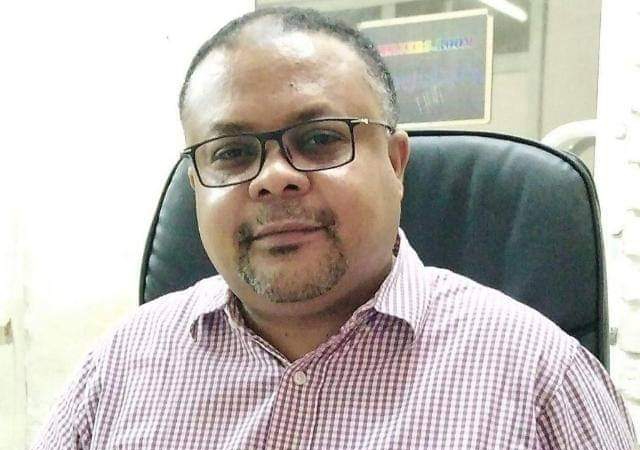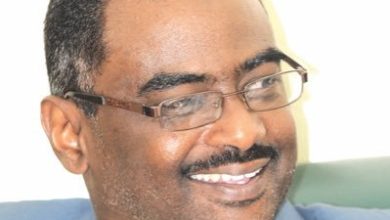A Rational Dialogue with Sudanese Revolutionary Forces

Osman Jalal
(Prelude)
( I published this article in March 2019, and its core idea is the necessity of the forces of revolution and change to pursue the option of reform and gradual democratic change from within the structure of the regime and the state up to the 2020 elections, and to avoid the revolution for fear of it turning to violence, which means a war of all against all and the collapse of Sudan, or employing it from abroad in favor of its malicious agenda. What is the role of the political, societal and revolutionary forces in this historical moment in which Sudan exists or does not exist??
To the article and conclusions
(1)
There is a state of agreement among scholars of political thought, the essence of which is that the only mechanism for changing any ideological or sectarian system that has been identified with the institutions of the state and society for a long time is the mechanism of dialogue and settlement through political bargaining and the necessity of gradually dismantling its corrupt institutions and retaining good institutions and employing them for the benefit of the national democratic project. Likewise, the genius of peaceful change requires intelligent dealing with the constitutional and institutional frameworks built by the unilateral regime to stabilize and consolidate itself and employing them for the benefit of the project of reform and democratic change.
The political wisdom of the forces of democratic change is also evident in dismantling the ideological implications of the belief system in spaces of intellectual, political, and cultural conflict, as well as patient quest to transform the institutions of the authoritarian regime into levers supporting the sustainable democratic project, because the tendency to destroy them means destroying the state. Preserving the entity of the state and the unity of the original community in the political consensus.
(2).
If that is so, then there is no justification for the state of contradiction between conscious revolution and reform, as they both flow into the river of issues of national construction and sustainable democracy. The tendency of rivalry between revolution and reform does not exist in history except in the Marxist-Leninist school, and this was demonstrated in the historical conflict between the revisionist reformist movement led by Rosa Luxemburg, and Bernstein. This current’s vision crystallized in the possibility of gradual and gentle change from within the structures and institutions of the capitalist system by adopting the issues of workers’ demands. Leftist parties in Europe interacted with this vision in the 1960s, while the revolutionary theorist Vladimir Lenin confronted this vision and described it as revisionism, and founded what was known in the history of the international communist movement (the Third International), which is based on a comprehensive revolution against the old regime.
The conscious revolution is the creation of all of community with all its differences and contradictions. Thus was the Russian Revolution that exploded against the Tsarist regime in 1917, but the Communists took control of it by force in favor of the Soviets under false tactical slogans (All power to the Soviets) while it contained the real goal (All power to the Bolsheviks), after which the Bolsheviks liquidated all the intellectual and political currents that participated in making the Russian Revolution. The revolution was reduced to a dictatorship of the proletariat and then turned into a dictatorship without a proletariat, as you know.
(3)
The success of any revolution is evident in five factors, the first of which is peacefulness. Experiences have shown that the rise of any peaceful revolution against a ideological or sectarian system will not continue in its peaceful form, but will drift into violence and militarization, either from the authoritarian regime under the pretext of maintaining security and stability, or the revolution will drift into violence and militarization, and in the case in Sudan, which has security and social fluidity, the militarization of the revolution means chaos, civil war, and the collapse of the state.
The second factor for the success of the revolution is the necessity of a state of national integration and societal cohesion within the state. But the accumulation of the national crisis has deepened the state of identity and ethnic disharmony, and therefore the choice of revolution may lead to a war of all against all, and the destruction of the societal fabric.
The third factor for the success of the revolution is the inspiring leadership of community, and leadership according to modern concepts appears in political parties. The accumulation of the national crisis has also led to the weakening and fragmentation of political parties, and the return of community to tribal and regional loyalties. The rise of the revolution in this societal fluidity means war on the basis of a conflict of deadly identities.
The fourth factor for the success of the revolution is breaking the barrier of fear. Conscious youth have broken it, but they must employ these positive energies by joining existing political parties to advance them intellectually, politically and organisationally. The sustainable national democratic project is in need of heads and leaders with new political ideas and behavior.
The decisive factor for the success of the revolution is the bias of the military institution toward change. However, if the revolution occurs and the military institution takes hold in defiance of the regime, this means either aborting the revolution by force or a vertical split in the structure of the military institution, which means falling into the trap of civil war.
(4)
Rationality and political wisdom require political parties to accommodate youth movements into their organizational bodies and motivate them to transform the current state of revolutionary frenzy in the street into fruitful and constructive dialogues about the sustainable national democratic project. These should be organized in the role of political parties, and in areas of activity in universities, public squares, and various media outlets as well. The competent authorities must release detainees, political activists, and media professionals and create a climate to deal constructively with the change initiative launched by President Al-Bashir. Political rationality also requires armed movements to renounce violence and transform into civil and national political movements instead of entrenching themselves in a regional ethnic situation.
(5)
Political wisdom requires that all political forces join President Al-Bashir’s initiative for national reconciliation and change because this will enhance the value that the Sudanese-Sudanese dialogue is the basis for managing issues of national and democratic construction, which means sparing Sudan from the malicious foreign agenda, and any results of this initiative will inevitably be in favor of Peaceful democratic transformation.
Likewise, political wisdom requires the formation of a critical historical bloc that includes all national political forces and an agreement to actively participate in the 2020 elections, as it is the peaceful and legal organizing mechanism that will contribute to the creation of a sustainable democratic transformation. It is necessary to go a long way to reach the goal. Reaching the goal inherits wisdom and rationality, and the institutionalization of democracy in Sudan. It must be accomplished with the values of dialogue, wisdom and peace.
(6)
Returning to the introduction to the article, what is the duty of the political, societal and revolutionary forces and all sectors of the Sudanese people after the December 2018 revolution was hijacked and militarized by the elements of the counter-revolution, represented by the UAE and the Dagalo Clan militia, and Forces of Freedom & Change (FFC) – the Central Council, in order to swallow up the Sudanese state and establish the Dagalo Clan kingdom and its guards, the Arabs of the diaspora and its employees and senior employees are FFC leaders of the Central Council??
The duty is to engage in the armed popular resistance shoulder to shoulder with the Sudanese army and under its leadership in the battle of national honor to dismantle and liquidate this evil project that targets Sudan, a state, nation, identity, history, present and future.
Defeating this criminal plan, with all the Sudanese people uniting with money and weapons and their valiant army, means the confident beginning of the restoration of community and its leadership in the issues of national construction and sustainable democratic transformation.


